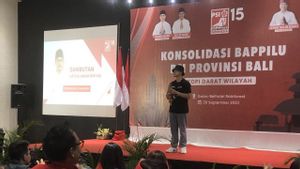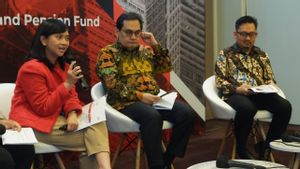Indonesian politics always presents surprises, and one of the latest surprises is the appointment of Kaesang Pangarep as General Chair of the Indonesian Solidarity Party (PSI). This decision has raised various questions regarding its impact on the national political map, especially in the perspective of the presidential election which will take place in 2024.
As a large population country with a high birth rate, Indonesia has a significant number of young voters. Data from the General Election Commission (KPU) shows that young voters, including the Gen Z and millennial groups, will play a very important role in the 2024 elections. Their number reaches more than 100 million people, or around 52 percent of the total voters.
Kaesang Pangarep, who was born on December 25 1994, is not yet 30 years old and has great popularity among young people, has become a very attractive figure for young voters. His charisma, relaxed speaking style, and involvement in various social media activities make him uniquely attractive. Kaesang is also known as a progressive figure, especially in issues that are of primary concern to the younger generation, such as education, work, sports and business.
After officially serving as General Chair of PSI, Kaesang took wise steps by establishing relationships with volunteers who supported Jokowi. This action is strategic because it can bring him closer to young voters, the majority of whom are Jokowi's loyal supporters. By collaborating with them, Kaesang hopes to build a strong network and gain more support.
Kaesang's decision to lead PSI also raises questions about his relationship with Jokowi, the current president. Indeed, President Jokowi approves of his youngest son's step into politics. However, it must be remembered that Jokowi comes from PDIP which supports Ganjar Pranowo as a presidential candidate, while PSI, before Kaesang became chairman, PSI was close and close to Prabowo Subianto.
SEE ALSO:
Jokowi is known as a politician who has a wide network and has succeeded in maintaining good relations with various parties, including Prabowo Subianto. How Kaesang will manage his relationship with Jokowi and its impact on the ongoing political game is an important focus of attention.
Kaesang Pangarep's steps in the world of politics also brought the issue of political dynasties to the surface. Because it seems impossible for Kaesang to immediately become chairman of the party if he doesn't have the title of son of the president. Despite this, some of his supporters and PSI members see this young leadership as a way to bring new spirit and innovation to Indonesian politics. This gives hope to other political parties to re-evaluate their strategies in facing political challenges and how they can better involve the younger generation.
Kaesang Pangarep enters politics at an interesting time, when young voters are becoming an increasingly influential force in Indonesian politics. As a young leader, Kaesang has a great opportunity to win the support of this segment of the electorate, but is also faced with great pressure to live up to their expectations. How he faces this challenge and builds his relationship with young voters will be one of the interesting stories in Indonesian politics ahead of the 2024 elections.
The English, Chinese, Japanese, Arabic, and French versions are automatically generated by the AI. So there may still be inaccuracies in translating, please always see Indonesian as our main language. (system supported by DigitalSiber.id)
















